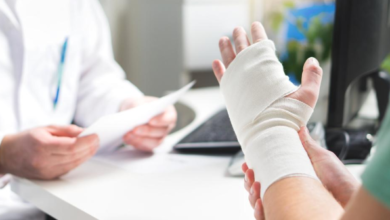Mastering Personal Injury Leads: A Comprehensive Guide to Boosting Your Practice

In the legal industry, personal injury leads play a significant role in the success and growth of law firms. These leads refer to potential clients who have experienced injuries or harm due to the negligence or wrongdoing of others and are seeking legal representation to seek compensation for their losses. Acquiring high-quality personal injury leads can be a challenging task for law firms, as they need to find a way to stand out in a competitive market and effectively connect with potential clients. This comprehensive guide aims to provide law firms with valuable strategies and insights to master the art of generating personal injury leads and boosting their practice.
Understanding Personal Injury Leads
Definition and Explanation
Before delving into the strategies for generating personal injury leads, it is crucial to understand what they entail. Personal injury leads refer to individuals who have suffered harm, physically, emotionally, or financially and are actively seeking legal assistance to pursue a compensation claim. These individuals may have been involved in incidents such as car accidents, medical malpractice, slips and falls, or workplace injuries.
Different Types of Personal Injury Cases
Personal injury leads can arise from a range of different case types. These cases include but are not limited to motor vehicle accidents, premises liability claims, product liability cases, medical malpractice suits, and workplace injuries. Each case type requires unique expertise and understanding, making it essential for law firms to target specific personal injury niches to attract higher-quality leads.
Importance of Targeting Specific Personal Injury Niches
Focusing on specific personal injury niches allows law firms to establish themselves as authorities in those areas, attracting clients requiring their expertise. By developing a deep understanding of niche areas, such as medical malpractice or product liability, law firms can effectively market their services to potential clients within these niches. This targeted approach not only generates higher quality leads but also helps in building a reputation as a trusted and skilled firm in the field of personal injury law.
How Personal Injury Leads Differ from Other Legal Leads
While personal injury leads fall under the broader umbrella of legal leads, they possess unique characteristics that set them apart. Personal injury leads are often emotionally charged due to the physical or emotional trauma they have experienced. This emotional aspect requires attorneys to approach these leads with empathy and compassion, understanding the sensitive nature of their cases. Moreover, personal injury leads are usually driven by a desire for justice and compensation, making it crucial for law firms to effectively communicate their ability to advocate for their clients’ rights.
Strategies for Generating Personal Injury Leads
To master the art of generating personal injury leads, law firms can implement various strategies tailored to their specific needs and target audience.
Identifying Sources of Personal Injury Leads
- Online Platforms and Directories: Law firms can leverage online platforms and directories like Avvo, Justia, or FindLaw to connect with potential clients actively searching for legal representation in personal injury cases. Establishing a presence on these platforms allows law firms to reach a broader audience and increase their chances of attracting quality leads.
- Referrals from Previous Clients and Other Lawyers: Satisfied clients and fellow attorneys can be valuable sources of personal injury leads. Developing strong relationships with previous clients and maintaining connections with other lawyers can lead to a steady stream of referrals, as they can vouch for the expertise and professionalism of the firm.
- Lead Generation Companies: Law firms can also collaborate with lead generation companies that specialize in providing personal injury leads. These companies employ various marketing tactics to attract individuals seeking legal representation for personal injury cases, and they can provide law firms with a consistent flow of qualified leads.
- Advertising and Marketing Campaigns: Implementing targeted advertising and marketing campaigns can help law firms reach a wider audience and attract potential personal injury leads. These campaigns can include online advertisements, billboards, radio spots, and television commercials. By showcasing their expertise and unique value proposition, law firms can capture the attention of individuals needing legal assistance.
Maximizing Online Presence for Lead Generation
To effectively generate personal injury leads, law firms must optimize their online presence.
- Optimizing Website and Landing Pages: Crafting a user-friendly and visually appealing website is crucial for capturing leads. Law firms should ensure their website is well-organized, easy to navigate, and provides relevant information about their expertise in personal injury cases. Additionally, creating dedicated landing pages that focus on specific case types can help attract leads searching for specialized representation.
- Utilizing Search Engine Optimization (SEO) Techniques: Implementing SEO strategies allows law firms to improve their website’s visibility in search engine results. By incorporating relevant keywords, creating informative and engaging content, and optimizing meta tags and descriptions, law firms can increase their chances of ranking higher in search engine rankings and attracting organic traffic.
- Creating Valuable Content to Attract Leads: A successful content marketing strategy can position law firms as authoritative sources of information in the personal injury domain. By consistently publishing informative blog posts, articles, and videos, law firms can attract leads seeking answers to their legal questions and establish trust and credibility.
Building a Solid Referral Network for Consistent Lead Flow
Developing a strong referral network is essential for a steady flow of personal injury leads.
- Establishing Connections with Related Professionals: Building relationships with professionals such as doctors, insurance agents, and rehabilitation specialists can lead to valuable referrals. These professionals often contact individuals who have suffered injuries and can recommend law firms when legal assistance is needed.
- Participating in Local Events and Organizations: Active involvement in community events and organizations allows law firms to connect with potential clients and establish themselves as trusted authorities within the local community. By demonstrating their dedication to serving the community and educating individuals about their rights, law firms can attract personal injury leads and build a positive reputation.
Leveraging Social Media Platforms for Lead Generation
Social media platforms provide law firms with an effective way to engage with potential personal injury leads and establish a strong online presence.
- Effective Use of Facebook, LinkedIn, and Twitter: Law firms can leverage these platforms to share informative content, engage in conversations, and build relationships with potential leads. By consistently providing value and addressing common legal concerns, law firms can position themselves as knowledgeable and trustworthy sources of information.
- Engaging with Potential Leads through Online Communities and Groups: Actively participating in online communities and groups related to personal injury law allows law firms to engage with potential leads directly. By answering questions, offering guidance, and providing support, law firms can establish themselves as helpful resources and increase the likelihood of attracting qualified leads.
Qualifying and Assessing Personal Injury Leads
Once law firms generate personal injury leads, it is crucial to qualify and assess their quality to ensure effective resource allocation.
Importance of Qualifying Leads
Qualifying leads saves time and resources by focusing efforts on leads most likely to convert into clients. By assessing the needs, circumstances, and potential value of each lead, law firms can prioritize their follow-up actions and tailor their approach to maximize conversion rates.
Key Criteria for Assessing Lead Quality
- Demographics and Location: Understanding the demographics and location of personal injury leads allows law firms to assess whether they align with their target audience. Factors such as age, occupation, and geographic location can influence the probability of conversion.
- Specific Nature of the Personal Injury Case: Assessing the specific nature of the personal injury case enables law firms to determine their expertise and ability to handle the matter effectively. Case complexity, severity of injuries, and potential liabilities are important factors to consider when evaluating lead quality.
- Potential Value of the Case: Estimating the potential value of the case helps law firms gauge the financial significance and resource allocation required for each lead. Assessing factors such as medical expenses, lost wages, and pain and suffering allows firms to prioritize leads that offer the most potential value.
Implementing Effective Lead Tracking and Management Systems
To streamline lead qualification and assessment processes, law firms should implement robust lead tracking and management systems. These systems can help track interactions, store lead information, and automate follow-up processes, ensuring leads do not fall through the cracks and enabling firms to nurture leads effectively.
Nurturing Personal Injury Leads
To effectively convert personal injury leads into clients, law firms must focus on nurturing relationships and establishing trust.
Importance of Follow-up and Consistent Communication
Following up with personal injury leads is crucial to maintain engagement and foster relationships. Consistent communication not only keeps the law firm top of mind but also reinforces the firm’s commitment to client satisfaction.
Creating Personalized and Targeted Follow-up Strategies
To ensure effective follow-up, law firms can employ various strategies tailored to individual leads.
- Phone Calls and Emails: Personalized phone calls and emails allow law firms to address specific concerns, answer questions, and offer guidance to potential leads. These direct interactions demonstrate a genuine interest in their case and build trust.
- Newsletters and Educational Content: Sending newsletters and educational content related to personal injury law can keep leads engaged and informed. By sharing valuable insights, updates, and success stories, law firms showcase their expertise and commitment to providing clients with relevant information.
- Webinars and Events: Hosting webinars or events specifically focused on personal injury law allows law firms to educate and engage with leads on a larger scale. These virtual or in-person events enable firms to position themselves as industry experts and build credibility.
Establishing Trust and Credibility through Effective Communication
Law firms should prioritize effective communication to establish trust and credibility with personal injury leads. By actively listening, empathizing with their situation, and providing clear and transparent explanations of legal processes, law firms can alleviate concerns and showcase their commitment to client-centric representation.
Utilizing CRM and Automation Tools for Lead Nurturing
Implementing customer relationship management (CRM) systems and automation tools can streamline and enhance lead-nurturing efforts. These tools allow law firms to automate follow-up sequences, track communication histories, and efficiently manage lead information. By leveraging technology, law firms can ensure consistent and personalized communication, leading to stronger relationships with leads.
Converting Personal Injury Leads to Clients
Converting personal injury leads into clients requires a strategic approach prioritizing building strong attorney-client relationships.
Strategies for Building a Strong Attorney-Client Relationship
- Active Listening and Empathizing with Their Situation: Demonstrating empathy and actively listening to personal injury leads’ concerns allows law firms to establish trust and understanding. By showing genuine care and compassion, law firms can create a strong foundation for a successful attorney-client relationship.
- Providing Clear and Transparent Explanations of Legal Processes: Personal injury leads often have limited knowledge of legal procedures. Clear and concise explanations of processes, timelines, and potential outcomes can alleviate concerns and empower leads to make informed decisions.
- Offering Free Consultations and Case Evaluations: Providing free consultations and case evaluations showcases a law firm’s commitment to ensuring potential clients receive the support they need. These initial engagements enable firms to build rapport, evaluate the case’s viability, and propose suitable legal strategies.
Effective Negotiation Techniques to Close Deals
Negotiation skills play a crucial role in converting personal injury leads into clients. Law firms should leverage effective negotiation techniques to advocate for their client’s best interests while seeking fair resolutions. By understanding the case’s value, assessing potential outcomes, and leveraging their expertise, law firms can secure favorable settlements or navigate litigation successfully.
Maximizing Client Testimonials and Referrals for Further Lead Generation
Satisfied clients can become powerful advocates for law firms. By encouraging clients to share testimonials and refer their friends, family, or colleagues, law firms can unlock a valuable source of lead generation. Testimonials and referrals provide social proof and help potential leads feel confident in choosing a law firm that has a track record of success.
Tracking and Analyzing Personal Injury Lead Performance
It is essential for law firms to track and analyze the performance of their personal injury leads to make data-driven decisions and assess the effectiveness of their strategies.
Setting Key Performance Indicators (KPIs) for Lead Generation and Conversion
Establishing concrete KPIs allows law firms to measure the success of their lead-generation efforts. Metrics such as the number of leads generated, conversion rates, average case value, and client retention rates can provide valuable insights into the effectiveness of specific strategies and help in identifying areas for improvement.
Monitoring Lead Acquisition Costs and Return on Investment (ROI)
Tracking lead acquisition costs and calculating ROI enables law firms to assess the financial viability of their lead generation strategies. By evaluating the costs associated with acquiring each lead and comparing them to the revenue generated, law firms can determine the profitability of their marketing and advertising campaigns.
Utilizing Analytics Tools to Assess Lead Performance
Leveraging analytics tools provides law firms with comprehensive data on lead behavior, engagement, and conversion rates. By analyzing website traffic, click-through rates, and other relevant metrics, law firms can gain insights into the effectiveness of their online presence and make data-driven decisions to optimize lead generation and conversion processes.
Conclusion
Mastering the art of generating high-quality personal injury leads is a critical aspect of boosting a law firm’s practice. By implementing the strategies and steps outlined in this comprehensive guide, law firms can position themselves as trusted authorities in the field of personal injury law and attract valuable leads. From identifying sources of personal injury leads to nurturing relationships and converting leads into clients, the process requires dedication, effective communication, and a genuine commitment to client satisfaction. By continuously analyzing, adapting, and optimizing their lead generation efforts, law firms can achieve sustainable growth and success in the highly competitive legal industry.




